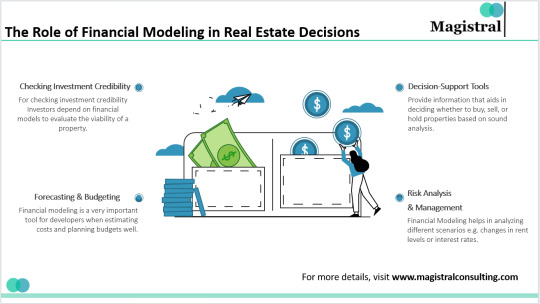#financialmodel
Explore tagged Tumblr posts
Text
#myinvestorchoice#businessplan#feasibilitystudy#Investorreadydocument#businesssuccess#marketing#pitchdeck#financialmodel
0 notes
Text

Proactively plan and track your team's time to get more done with effort and stress. GroundSwell ONE's time planning and tracking module empowers your team to staff projects and goals with the right people and resources.
#GroundSwell℠#GroundSwellONE℠#BusinessOwnershipPlatform℠#BusinessOwnership#BusinessPartner#TimeDrivenCosting#FinancialModel#FinancialPlanning#Budget#BusinessProcessImprovement#Efficiency#ResourceAllocation
0 notes
Text
Financial Management एक ऐसा महत्वपूर्ण एलेमेंट है, जो हर कंपनी के लिए जरूरी होता है। यदि आप अपने बिजनेस के लाभ को बढ़ाना चाहते हैं और उसका विकास करना चाहते हैं, तो वित्तीय मॉडल आपके लिए एक बहुत ही महत्वपूर्ण टूल साबित हो सकता है। इस आलेख में हम आपको वित्त प्रबंधन के महत्व के बारे में और विभिन्न वित्तीय मॉडलों के बारे में बताएँगे।
0 notes
Text
V-Score: A Novel Metric For Quantum Algorithm Performance

Researchers and scientists are continuously searching for methods and tools that can improve quantum problem-solving abilities in the rapidly changing field of quantum computing. The V-Score is one such invention that is causing a stir in the industry. This cutting-edge measure is revolutionizing the evaluation and optimization of quantum algorithms and advancing the limits of what is feasible in quantum computing.
We will discuss the V-Score‘s definition, operation, and reasons for being heralded as a secret weapon in the field of quantum problem-solving in this extensive post.
What is the V-Score?
A new metric for assessing the efficacy and efficiency of quantum algorithms is the V-Score. To put it simply, it is a quantitative instrument that assesses the performance of a quantum solution in relation to classical techniques. Researchers can better understand how quantum systems can beat traditional computers in tackling complicated problems by using the quantum, which evaluates a number of criteria such processing time, energy consumption, and solution correctness.
The capacity to correct for quantum noise and errors is one of its most notable properties. Despite their immense capacity, quantum systems are still vulnerable to operational mistakes and decoherence, which can compromise the dependability of their solutions. The V-Score aids in measuring these flaws and offers information on how near error-free a quantum solution is.
Why is the V-Score a Game-Changer for Quantum Problem Solving?
The intricacy of quantum problem solving and the enormous amount of computing power needed to solve it are frequently used to characterize the field. Problems that grow exponentially, such molecular simulations, cryptography, and optimization tasks, are difficult for conventional computer systems to handle. This is the area in which quantum computing shines. The difficulty has always been demonstrating that quantum solutions are superior to classical systems in practical applications, particularly in noisy settings.
By providing a consistent benchmark for comparing quantum algorithms to classical ones, the V-Score alters the rules of the game. Researchers may now clearly respond to the question of whether and to what degree quantum solutions are superior in particular situations by employing this metric. Improved assessment of the quantum advantage creates new opportunities in sectors like finance and pharmaceuticals, where more rapid and effective problem-solving may result in ground-breaking breakthroughs.
How Does the V-Score Work?
A number of metrics that measure a quantum algorithm’s performance are used to compute the V-Score, including:
Speed: In comparison to traditional algorithms, how fast does the quantum algorithm tackle the problem?
Precision: Does the precision of the quantum solution equal or exceed that of the classical approaches?
Energy Efficiency: Although the V-Score calculates the exact energy savings in particular situations, quantum computers generally use less energy than conventional systems.
Noise and Error Resilience: This measure takes into consideration how well the quantum system handles quantum noise and mistakes that arise during calculations.
These criteria are combined by the V-Score to create a single score that may be used to compare various quantum algorithms or solutions. A quantum solution with a higher V-Score is more efficient.
Applications of the V-Score in Quantum Computing
In a number of sectors where quantum computing is anticipated to have a revolutionary effect, the V-Score is proving to be an effective instrument. The V-Score is used in the following important areas:
Molecular Simulations and Drug Development
In order to precisely represent complicated molecules and chemical reactions that are challenging for classical systems to model, pharmaceutical companies are using quantum computing. Researchers may expedite the drug development process by using the V-Score to evaluate which quantum algorithms are best at forecasting molecular interactions.
Risk analysis and financial modeling
Quantum computing has the potential to resolve intricate optimization issues pertaining to risk assessment, pricing, and portfolio management in the financial industry. Financial organizations can assess whether quantum algorithms provide a notable edge over classical models in forecasting market movements or portfolio optimization by utilizing the V-Score.
Security and Cryptography
The field of cryptography faces both opportunities and risks due to quantum computing. They can develop new, quantum-resistant encryption protocols in addition to breaking conventional encryption techniques. By assessing the security strength of quantum encryption techniques, the V-Score makes sure that they are resilient enough to resist potential quantum assaults.
Machine learning and artificial intelligence
It is anticipated that quantum computing would transform AI and machine learning by improving the capacity to handle enormous volumes of data and identify patterns more quickly. AI researchers can improve the efficiency of their quantum-powered models by using the V-Score to assess how well quantum algorithms perform in model training and prediction.
The Future of the V-Score in Quantum Computing
The V-Score will become more and more significant in determining how problems are solved in a variety of industries as quantum computing develops. It makes it possible to assess quantum advantage precisely, which is essential for demonstrating the long-term sustainability and superiority of quantum solutions over classical techniques.
It is may anticipate that will continue to develop and improve, possibly incorporating new metrics that assess the efficiency of multi-qubit interactions, error correction, and quantum annealing. The V-Score will continue to be the standard metric for evaluating the performance of quantum computing with this development.
In conclusion
The V-Score is quickly emerging as a vital tool for tackling quantum problems. For scientists and business executives hoping to fully utilize quantum computing, its capacity to assess how well quantum algorithms perform in comparison to traditional methods makes it indispensable. As this field develops, will remain essential in spurring innovation, opening up new avenues in sectors like healthcare and finance, and assisting in the resolution of some of the most difficult problems facing humanity.
Read more on govindhtech.com
#VScore#NovelMetric#quantumcomputing#game#QuantumAlgorithmPerformance#AI#Security#Cryptography#machinelearning#artificialintelligence#financialmodeling#Riskanalysis#DrugDevelopment#GameChanger#technology#technews#news#govindhtech
2 notes
·
View notes
Photo

Dear
Just needed to inform you that after conducting multiple successful batches of the “100% Job Guarantee IB Program”,
we have decided to conduct one last super batch!
And unlike the previous batches, this one is going to be even more:
· Power-packed
· Information-intensive
· And full of applicative learning.
· Become a pro in concepts like financial modelling, and market analysis with live demonstrations from a real world Investment banker(your mentor)!
· And once you finish the program, you will be given dedicated Placement services by our hiring team to ensure that you get a guaranteed job in the domain.
· And most importantly,
· Since this is a 100% job guarantee program, you are entitled to get back 100% of the program fees if you don’t get a job by the end of the program.
· So, if you want to kickstart a career in investment banking with our last super batch, then fill the form below: https://www.jobaaj.com/forms/ib_program
· And our team will contact you to resolve your queries and doubts.
Jobaaj.com New Delhi +91 9068813045
2 notes
·
View notes
Text
📊 Harness MATLAB for Financial Modeling: Advanced Analytics
Discover the capabilities of MATLAB for financial modeling and analysis. Learn to manipulate financial data, perform statistical tests, and create impactful visualizations. From risk assessment to predictive modeling, master financial analytics with MATLAB.
👨💻 Practical Examples: Explore MATLAB with hands-on examples, including:
📈 Portfolio optimization and risk analysis
📉 Time series forecasting and market simulation
📊 Custom plots and financial charts
📚 Tutorials on data preprocessing, financial modeling, and advanced analytics
🔍 Uncover Insights: Use MATLAB to reveal patterns and trends in your financial data. From exploratory analysis to model deployment, make data-driven decisions with MATLAB.
Ready to transform your financial modeling skills with MATLAB? Let’s dive in together!
📞 WhatsApp: +971 50 161 8774
📧 Email: [email protected]
0 notes
Text


Real Estate Financial Modeling Essentials to Boost Your Investment Decisions
0 notes
Text
AI is revolutionizing financial modeling by delivering insights with unprecedented accuracy and speed. By leveraging machine learning algorithms, companies can analyze vast datasets, forecast trends, and mitigate risks more effectively than ever. Whether it’s predicting market movements, optimizing portfolios, or improving credit scoring, AI-driven models provide a competitive edge in decision-making. The future of finance is smart, and companies embracing AI are leading the charge. Want to explore how AI can transform your financial strategies?
Read more:
#AI#FinancialModeling#FinTech#MachineLearning#FinanceRevolution#InvestSmart#DataDriven#FutureOfFinance#RiskManagement#PortfolioOptimization
0 notes
Text
Blog Post: Skewness, Asymmetry, and the Unpredictability of Life – Insights from Chapter 6 of "Fooled by Randomness"
Explore Chapter 6 of "Fooled by Randomness," where Nassim Taleb unpacks the concepts of skewness and asymmetry in random events. Learn how these imbalances affect our understanding of risk and decision-making.
As we continue our exploration of Nassim Nicholas Taleb’s “Fooled by Randomness,” Chapter 6 introduces us to the concepts of skewness and asymmetry in random events. Titled “Skewness and Asymmetry,” this chapter dives into how these statistical properties affect our understanding of probability and risk. Taleb argues that many aspects of life, particularly in finance, are not evenly distributed…
#Asymmetry#BehavioralFinance#BookReview#CognitiveBiases#DecisionMaking#FinancialModels#FooledByRandomness#NassimTaleb#Probability#Randomness#RiskManagement#Skewness#Statistics#Unpredictability
0 notes
Text
Why is Financial Modelling Important?

In the fast-paced world of business, making informed financial decisions is more critical than ever. Financial modelling, a process that uses quantitative analysis to project a company's future financial performance, is a vital tool for businesses of all sizes. This blog post will delve into the importance of financial modelling, exploring how it enhances decision-making, manages risk, aids in strategic planning, and strengthens investor relations.
1. Enhancing Decision-Making
In today’s data-driven environment, making decisions based on solid evidence rather than intuition is paramount. Financial modelling provides a framework for predicting future financial performance, enabling businesses to evaluate different scenarios and outcomes.
Importance of Data-Driven Decisions: Financial models allow businesses to leverage historical data and trends to forecast future performance. This data-driven approach helps in making informed decisions that can significantly impact the company's bottom line.
Predicting Future Financial Performance: By creating detailed projections, businesses can anticipate future revenues, expenses, and profitability. This foresight enables companies to plan more effectively and allocate resources where they are most needed.
Evaluating Different Business Scenarios: Financial models can simulate various scenarios, such as changes in market conditions or shifts in consumer behavior. This allows businesses to prepare for different outcomes and make proactive adjustments.
Case Study: A mid-sized retail company used financial modelling to decide whether to expand its operations. By projecting costs and potential revenues, the company made an informed decision that led to successful expansion and increased profitability.
2. Risk Management
Identifying and mitigating financial risks is essential for long-term business success. Financial modelling plays a crucial role in risk management by providing tools to assess potential risks and develop strategies to address them.
Identifying Potential Financial Risks: Financial models help identify areas of vulnerability within a business, such as cash flow issues or market volatility. This early detection allows companies to address risks before they become critical problems.
Stress Testing and Scenario Analysis: By conducting stress tests and scenario analyses, businesses can evaluate how different factors impact their financial stability. This helps in developing contingency plans and strategies to mitigate risks.
Mitigating Risks with Informed Strategies: With a clear understanding of potential risks, businesses can implement strategies to minimize their impact. This might include diversifying investments, adjusting pricing strategies, or securing additional financing.
Example: A manufacturing firm used financial modelling to navigate a period of economic uncertainty. By identifying potential risks and developing contingency plans, the company maintained stability and continued to grow despite challenging market conditions.
3. Strategic Planning
Long-term success requires careful planning and alignment of financial goals with overall business strategy. Financial modelling is instrumental in strategic planning by providing a roadmap for future growth and resource allocation.
Long-Term Financial Forecasting: Financial models offer a detailed forecast of future financial performance, providing a clear picture of where the business is headed. This helps in setting realistic goals and planning for sustainable growth.
Aligning Financial Goals with Business Strategy: By integrating financial projections with strategic objectives, businesses can ensure that their financial goals support their overall mission and vision. This alignment is crucial for achieving long-term success.
Resource Allocation and Budgeting: Financial models assist in allocating resources efficiently and creating detailed budgets. This ensures that funds are used effectively and supports strategic initiatives.
Case Study: A tech startup used financial modelling to plan its expansion into new markets. By aligning financial projections with strategic goals, the company successfully entered new markets and achieved significant growth.
4. Investor Relations
Strong investor relations are crucial for securing funding and building confidence among stakeholders. Financial modelling plays a key role in communicating a company’s financial health and potential to investors.
Communicating Financial Health to Stakeholders: Financial models provide a transparent and detailed view of a company’s financial performance. This helps in building trust and confidence among investors and stakeholders.
Building Investor Confidence with Solid Projections: Accurate and detailed financial projections demonstrate a company’s potential for growth and profitability. This can attract investors and secure necessary funding.
Attracting Funding and Investment: Startups and growing businesses often rely on financial models to showcase their potential to investors. This helps in attracting investment and securing the capital needed for growth.
Example: A biotech startup used financial modelling to secure funding from venture capitalists. By presenting detailed financial projections and growth potential, the startup attracted significant investment and accelerated its development.
5. Performance Monitoring
Continuous performance monitoring is essential for staying on track and achieving business objectives. Financial modelling provides tools for tracking performance and making necessary adjustments.
Tracking Financial Performance Against Projections: Regularly comparing actual performance with financial projections helps businesses identify deviations and areas for improvement. This ensures that the company remains on track to achieve its goals.
Identifying Trends and Deviations: Financial models help in identifying trends, such as increasing costs or declining revenues, allowing businesses to address issues promptly.
Adjusting Strategies Based on Real-Time Data: With real-time data, businesses can make informed adjustments to their strategies, ensuring that they remain relevant and effective.
Case Study: A hospitality company used financial modelling to monitor its performance and adjust strategies in response to market trends. This proactive approach led to continuous performance improvement and increased profitability.
6. Valuation and Mergers & Acquisitions
Accurate valuation is critical in mergers and acquisitions (M&A) and financial modelling provides the tools needed for precise assessments.
Assessing Company Value Accurately: Financial models help in determining the true value of a company by analyzing various factors, such as assets, liabilities, and market conditions. This ensures accurate valuations during M&A deals.
Evaluating Potential Acquisition Targets: Businesses can use financial models to evaluate potential acquisition targets, assessing their financial health and growth potential.
Negotiating Better Terms in M&A Deals: With a clear understanding of value, businesses can negotiate better terms during M&A deals, ensuring favorable outcomes.
Example: A pharmaceutical company used financial modelling to evaluate and acquire a smaller competitor. This strategic acquisition strengthened the company’s market position and expanded its product portfolio.
Conclusion
Financial modelling is a powerful tool that supports informed decision-making, risk management, strategic planning, and investor relations. By leveraging financial models, businesses can navigate uncertainties, achieve their strategic goals, and build strong relationships with stakeholders. Integrating financial modelling into regular business processes is essential for long-term success and growth.
0 notes
Text
🌟 Delving into the Future: AI and Financial Modeling 📈
AI is revolutionizing financial modeling with its predictive prowess and data analysis capabilities. From risk assessment to market trends, AI algorithms are reshaping how decisions are made in finance. Dive deeper into how AI is transforming the financial landscape. 🚀
Read more ➡️
0 notes
Text
Unlock the secrets of Financial Modeling and Valuation! 📊💸
Understand business performance through data 📈
Predict future financials accurately 🔮
Valuate companies for smart investments 💼
Empower your financial decisions and achieve success in the Indian market! 🌟🇮🇳
0 notes
Text
Demystifying Financial Modeling: A Deep Dive into LPU Online's Curriculum

The financial world pulsates with complex calculations, strategic forecasts, and the constant pursuit of predicting future outcomes. This is where financial modeling emerges as a vital tool – a powerful language spoken by analysts, investors, and business leaders alike. But what exactly is financial modeling, and why is it such a sought-after skill?
This blog post delves into the heart of LPU Online's Finance Specialization program, offering a detailed look at their Financial Modeling course and its immense significance in the dynamic landscape of finance.
Financial Modeling: Constructing the Cornerstone of Financial Decisions
Imagine a business plan as a blueprint for success. Financial modeling acts as the translator, transforming that blueprint into a dynamic, data-driven tool. Financial models utilize sophisticated spreadsheets and specialized software to forecast future cash flows, analyze profitability, and assess potential risks. These intricate models serve as the cornerstone for a variety of crucial financial decisions:
Investment Decisions: Before committing capital, investors rely heavily on financial models to understand the potential returns and risks associated with a particular investment. Models analyze factors like projected growth, competition, and market trends, providing a comprehensive risk-reward assessment.
Loan Applications: Obtaining a loan often hinges on a business's ability to demonstrate its financial viability. Robust financial models play a critical role in this process, showcasing the company's projected cash flow and its ability to repay the borrowed funds.
Mergers and Acquisitions (M&A): Financial models are instrumental in valuing companies during mergers or acquisitions. These models consider factors like financial performance, future growth potential, and market conditions, ultimately aiding in determining the feasibility and fair value of the transaction.
Strategic Planning: Business leaders leverage financial models to plan for the future. Models help forecast future growth, predict revenue streams, and assess the impact of potential strategic decisions, allowing for informed resource allocation and a roadmap for sustainable success.
LPU Online's Financial Modeling Course: Equipping You for Financial Mastery
LPU Online's Financial Modeling course goes beyond a basic introduction – it's a comprehensive deep dive into the core principles and practical applications of this essential skill. Here's a breakdown of what you can expect to learn:
Building the Foundation: Master the Three Statements: The course starts by solidifying your understanding of creating income statements, balance sheets, and cash flow statements – the fundamental building blocks of any financial model. Mastering these statements is vital for constructing an accurate and insightful model.
Time Value of Money: Understanding the Power of Time: You'll delve into the concept of time value of money (TVM), a fundamental principle in finance. TVM considers the impact of inflation and the present value of future cash flows – a crucial factor when analyzing investments or long-term financial planning.
Financial Forecasting Techniques: Predicting the Future with Accuracy: The course equips you with an arsenal of forecasting techniques, allowing you to predict future revenues, expenses, and cash flows with greater accuracy. These techniques range from historical trend analysis to more sophisticated methods like regression analysis.
Financial Modeling Software: Mastering the Industry Standard: Gain proficiency in industry-standard financial modeling software, such as Microsoft Excel with advanced features and functions. The course will guide you through utilizing these tools to build robust and user-friendly models.
Sensitivity Analysis: Assessing Risk and Reward: Develop the ability to perform sensitivity analysis – a crucial skill that allows you to analyze how changes in underlying assumptions can impact the model's outputs. This enables a more nuanced understanding of potential risks and rewards associated with various financial decisions.
Beyond the Technical: LPU Online's Holistic Learning Advantage
LPU Online's program offers more than just technical proficiencies in building financial models. They provide a holistic learning experience, equipping you with:
Critical Thinking Skills: The program fosters the development of critical thinking skills, allowing you to not only build models but also interpret their outputs effectively. You'll learn to analyze the results, identify potential limitations, and translate the model's insights into actionable recommendations.
Financial Acumen: The curriculum strengthens your overall financial acumen. You'll gain a deeper understanding of financial concepts, market dynamics, and risk management strategies, enabling you to utilize financial models within a broader financial context.
A Well-Rounded Curriculum: Complementary Courses for Financial Expertise
In addition to the Financial Modeling course, LPU Online's Finance Specialization program boasts a well-rounded curriculum that equips you with a comprehensive understanding of finance:
Corporate Finance: This course delves into the intricate world of corporate finance, exploring how companies raise and manage capital, make investment decisions, and optimize their financial structure.
Investment Analysis: Learn the art and science of investment analysis, equipping you with the skills to assess and evaluate investment opportunities based on risk tolerance, potential returns, and market trends.
Risk Management: Financial modeling thrives on understanding and mitigating risk. This course equips you with strategies to identify, assess, and manage financial risks, ensuring business continuity and informed decision-making.
Investing in Your Future with LPU Online
By mastering financial modeling, you unlock a valuable skillset that can propel you towards exciting career opportunities in various financial sectors. From investment banking and corporate finance to financial planning and risk management, your expertise in building and interpreting models will be highly sought after.
LPU Online's Finance Specialization program equips you with the knowledge, tools, and real-world insights to confidently navigate the ever-evolving world of finance. Whether you're a recent graduate seeking to enter the field, a seasoned professional looking to advance your career, or someone considering a career shift towards finance, this program offers a flexible and enriching learning experience.
Take the Next Step: Explore Your Financial Potential
Don't let this opportunity pass you by! Visit LPU Online's website today to explore their Finance Specialization program in detail. Learn more about the curriculum, faculty profiles, and the flexible online learning format that caters to your busy schedule. Don't hesitate to reach out to their enrollment team with any questions you may have. Remember, investing in financial modeling skills is an investment in your future career success. With LPU Online as your guide, you can unlock a world of exciting possibilities in the dynamic world of finance.
0 notes
Text
MS Excel Tips And Tricks
Use Of VLOOKUP Formula
.
www.nicatinstitute.com
Like! Comment! Share! 😊
#exceltipsandtricks#exceltips#microsoftexcel#microsoft#data#msexceltraining#education#dataanalysis#VLOOKUP#financialmodeling#vlookup#exceltip#nicat#nicatinstitute
0 notes
Link
https://www.spiritsofts.com/oracle-fccs-online-training/
Oracle EPBCS Online Training: Elevate Financial Planning with Advanced Cloud Solutions
Master Enterprise Planning: Learn how to leverage Oracle EPBCS to streamline financial planning, budgeting, and forecasting across your organization with cloud-based precision.
Comprehensive Workforce Planning: Gain insights into workforce planning and capital asset management to drive more informed business decisions and optimize resources.
Advanced Scenario Modeling: Develop skills in building and analyzing multiple financial scenarios, enabling agile responses to business changes and challenges.
Real-time Collaboration & Reporting: Enhance collaboration between departments with real-time data integration, dynamic dashboards, and advanced reporting capabilities.
0 notes
Text
Many fintech lenders have advanced innovations using machine learning and data science to develop algorithms that provide a consumer risk score (probability of default) and loan price (interest rate and APR) to the consumer.
#executive leader#Salvatore Tirabassi#Financial#data science#product management#creditanalysis#consumerlending#datascience#financialmodeling#xgboost#survivalanalysis#survivalmodel
0 notes